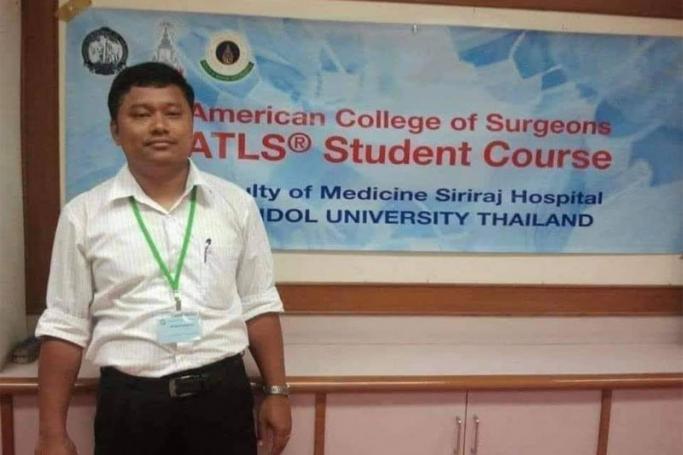The International Federation for Emergency Medicine today released a statement calling for the safe and unconditional release of the President of the Myanmar Emergency Medicine Society, Professor Maw Maw Oo, following his arrest and detention on Monday 12 April.
IFEM describes Professor Maw Maw Oo a widely respected figure both in Myanmar and internationally holding crucial positions in both Myanmar and regional COVID-19 responses.
Maw Maw Oo was arrested while on duty treating patients at the Yangon General Hospital Emergency Department- one of the busiest facilities in the country.
In addition to Maw Maw Oo, a skeleton staff of specialists at the hospital had been treating patients injured by Myanmar security forces in their crackdown against peaceful anti-coup protestors.
“His dedication and commitment to the establishment and advancement of emergency medicine in Myanmar as a clinician, educator and leader, as well as his service to the people of his nation is greatly admired in Myanmar, as well as globally.” the statement read.
Leading emergency medical professionals from societies around the world including Australia & New Zealand, the United Kingdom, Japan, Papua New Guinea & France united by their “grave concerns for the welfare of Professor Maw Maw Oo as (well as) his colleagues in Myanmar, who have not heard from him since his abduction.”
“His ongoing detention represents a critical threat to Myanmar’s emergency medicine and healthcare systems more broadly and undermines the ability of all healthcare workers to provide emergency care to the citizens of Myanmar.”
Myanmar security forces have since the 1 Feb coup targeted health professionals for taking a stand against military rule.
The regime has in recent weeks come under attack from regional and international governments and human rights observers for interfering with doctor’s medical neutrality.
This principle of ‘non-interference with medical services in times of armed conflict and civil unrest” means that medics must be allowed to care for the sick and wounded without interference, and that all parties to a conflict must not attack or misuse medical facilities, transport, and personnel.
Based in long established medical ethics, as well as international human rights & humanitarian law, such behaviour constitutes crimes against humanity outlined in the Geneva Conventions.












